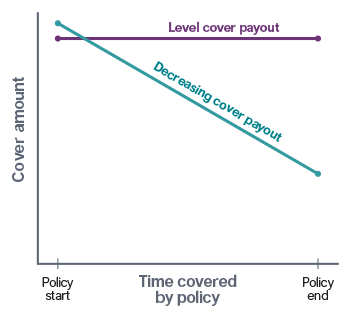Who Can Be a Nominee in Term Insurance, and Why Does It Matter?
You’ve done everything to secure your family’s future. You’ve bought a term insurance plan, carefully chosen the coverage, and paid premiums on time. But here’s something most people forget — choosing the right nominee.
A nominee in term insurance is not just a name on paper. This is the person who will receive the policy benefits if something unfortunate happens to you. The right nominee ensures that your hard-earned money reaches the right hands, quickly, safely, and without disputes.
What is a Nominee in Term Insurance?
A nominee in term insurance is the person you name in your policy. This individual will receive the death benefit if you pass away during the policy term. A nominee could be your spouse, child, parent, sibling, or even a trusted friend, depending on your personal situation.
The role of the nominee is crucial, as they are the one who gets financial coverage if you pass away. This ensures that the sum assured reaches your family without delay.
For instance, let’s assume a man named Ahmed names his wife Mahara as the nominee in his term insurance plan. In the unfortunate event of Ahmed’s death, she will receive the entire payout from the insurance company. This helps Mahara handle daily expenses, children’s education, or loan repayments — exactly as Ahmed would have wanted.
Best Term Insurance Plans in UAE
Some of the best Term Insurance quotes in UAE & Dubai are:





Importance of Nominee in Term Plan
Choosing a nominee is not just a formality — it’s a responsibility. Here’s why the importance of nominee in term plan cannot be overstated —
1. The Money Goes to the Right Person
When you choose a nominee, you are picking someone you trust — like your mom, dad, or brother — to get the money from your insurance. This makes sure it goes to the right person and doesn’t get lost or delayed.
2. Makes Things Faster and Easier
If the nominee’s name is already written in the policy, the insurance company can quickly give them the money. No extra waiting or confusion!
3. Reduces Conflicts
If you don’t choose a nominee, many people might end up in a dispute over who should get the money. Having a nominee keeps things peaceful and simple for your family.
4. Protects Your Family’s Financial Stability
Your term insurance nominee ensures your family continues to meet their needs: from school fees to loan EMIs, even when you’re no longer around.
Who Can Be a Nominee in Term Insurance?
Your life insurance policy allows you to nominate anyone with a legitimate connection to you. As per term insurance nominee rules, you can nominate anyone — family or non-family — as long as they meet certain eligibility criteria.
Let’s understand each category —
1. Spouse
Your husband or wife is the most common nominee choice. They are often the first in line to receive the death benefit since they manage household expenses and depend on your income.
2. Children
You can nominate one or more of your children. If they are minors (below 18 years), you must also appoint an appointee (a guardian) to manage the money until they become adults.
3. Parents
If you are unmarried or your parents depend on your income, nominating them ensures they remain financially secure.
4. Siblings
You may nominate a brother or sister if they are financially dependent on you. However, insurers may ask for proof of insurable interest.
5. Non-Family Members
In some cases, you can choose a close friend or distant relative as your nominee for term life insurance. However, this is usually allowed only if you can prove that the person has a valid financial dependency on you.
Types of Nominees in Term Insurance
When someone buys life coverage, they can choose who will get the money if something happens to them. These people are called nominees. Let’s look at the important type —
1. Beneficial Nominee
If you choose someone from your close family, like your mom, dad, husband, wife, or kids, they become beneficial nominees. This means only they will get the money from the insurance, even if someone else in the family asks for it. It’s a way to make sure your loved ones are taken care of first.
2. Minor Nominee
When your child is under 18, you can still name them as a nominee. However, you must also assign an appointee (guardian) to receive and manage the amount until your child turns 18.
3. Multiple Nominees
You can appoint more than one nominee and specify how much each will get. For instance, you can set 60% for your spouse and 40% for your child.
4. Contingent Nominee
This is your backup nominee. If your primary nominee cannot receive the payout, the contingent nominee will step in. It’s like having a safety net.
Term Insurance Nominee Rules You Should Know
Here are a few term insurance nominee rules that every policyholder should remember —
- You can change your nominee anytime during the policy term
- The latest nomination mentioned in the policy records is the one the insurer will honour
- If no nominee is mentioned, the insurance company will release the amount to your legal heirs
- Always keep the nominee’s details (age, address, relationship) updated with your insurer
- If your nominee is a minor, make sure to list a trustworthy appointee
Difference Between a Nominee and a Beneficiary
While many people use the terms ‘nominee’ and ‘beneficiary’ interchangeably, they serve different purposes. Let’s understand the differences in more detail —
| Aspect | Nominee | Beneficiary |
|---|---|---|
| Meaning | A person named to receive insurance benefits on behalf of the policyholder | The individual is legally entitled to inherit or utilise the benefits |
| Role | Acts as a custodian or trustee of the funds | Directly receives and uses the funds |
| Designation | Named in the insurance policy | Designated in wills, trusts, or legal documents |
| Applicability | Common for bank accounts, insurance, or property | Mostly applies to inheritance, wills, and trusts |
| Succession | Role doesn’t usually continue beyond initial receipt | Can include alternate beneficiaries for continuity |
What Happens If There’s No Nominee?
If you forget to nominate someone in your term insurance policy, the death benefit won’t automatically go to your family. Instead, your legal heirs will have to get a succession certificate or go through probate. The latter is a legal process that can delay access to funds.
In most cases, the amount is paid to your Class I legal heirs, which include —
- Spouse
- Children
- Parents
This delay can cause financial stress, which is why appointing a nominee is vital.
Can You Change Your Nominee in Term Insurance?
Yes, you can change or update your nominee at any time during the policy term. Life changes, marriages, children, divorces, or the passing of an existing nominee, make it essential to review and update this detail regularly.
All you need to do is submit a written request or online form to your insurer with the updated nominee details.
Things to Consider When Choosing a Nominee
Choosing the right nominee ensures your term insurance benefits reach the right person and serve their intended purpose. Here’s what to keep in mind —
| Factor | Why It Matters |
|---|---|
| Nominee’s Age | Minors need a guardian — adults can directly handle funds |
| Relationship | Ideally choose close family members who understand your dependents’ needs |
| Financial Dependence | Pick someone who truly depends on your income — like your spouse or children |
| Health | Select someone who is likely to outlive you and capable of managing long-term funds |
| Flexibility to Update | Be aware of how to modify nominees as your life circumstances change |
| Financial Awareness | Choose someone with basic financial understanding to manage proceeds wisely |
| Communication | Always inform your nominee and explain your expectations clearly |
| Estate Planning | Align your insurance nomination with your will or estate plan for consistency |
Mistakes to Avoid While Appointing a Nominee
Even a small mistake in choosing or managing your nominee details can create big problems for your family later.
Here are some common errors policyholders make and how you can avoid them —
1. Not informing the nominee
Your nominee should know that they are named in your term life insurance policy and where the relevant documents are stored. If the nominee is unaware, it could delay the claim process or worse, the benefits might remain unclaimed. Always share key details such as the policy number, insurer’s name, and claim process with them.
2. Not updating nominee details
Many policyholders forget to update their nominee information after such major events. This can cause legal complications during claim settlement. Regularly reviewing and updating your policy ensures the right person receives the benefit.
3. Choosing only one nominee
Relying on a single nominee is risky. In unfortunate cases where the primary nominee passes away before the policyholder or is unable to claim the benefit, the payout process becomes lengthy and complicated. Always appoint a contingent or secondary nominee — they can receive the claim amount if something happens to the first nominee.
4. Nominating a minor without an appointee
If your nominee is below the age of 18 years, you must legally appoint a guardian or appointee. This person will manage the insurance proceeds until the child becomes an adult.
Many people forget to do this. As a result, claim payouts get delayed or are held in court until a legal guardian is decided. To avoid such issues, always choose a responsible and trustworthy appointee.
5. Ignoring insurable interest
When nominating someone outside your family, such as a friend or distant relative, you must prove insurable interest. In plain terms, you need to prove that this person would face a financial loss if something happened to you. It’s safer to nominate family members or dependents unless you can legally establish this connection.
How to Choose the Right Nominee?
Choosing a nominee is like choosing a guardian for your family’s financial well-being. The right person will not only receive the money but will also manage it wisely to support your family’s future goals — whether it’s paying for a home loan, your child’s college fees, or everyday living expenses.
So, pick someone who is —
- Trustworthy
- Financially responsible
- Emotionally mature
- Capable of managing money well
Key Takeaways
- Always nominate someone in your life insurance plan, preferably a close family member
- You can name multiple or contingent nominees for extra security
- Review and update your nominee details after major life changes like marriage, childbirth, or divorce
- A beneficial nominee (spouse, children, parents) has the first legal right to claim the payout
- Without a nominee, your family may face long legal procedures to claim the benefits
Final Thoughts
A term life insurance policy is one of the most selfless investments you can make. But its true purpose is fulfilled only when your loved ones actually receive the benefits. That’s why the role of a term insurance nominee is so important.
Take a few minutes today to check your policy, review your nominee details, and make sure the person you trust most is listed correctly. Because when it comes to protecting your family’s future, every detail truly matters.
More From Term Insurance
- Recents Articles
- Popular Articles









.jpg)











.jpg)















.png)













